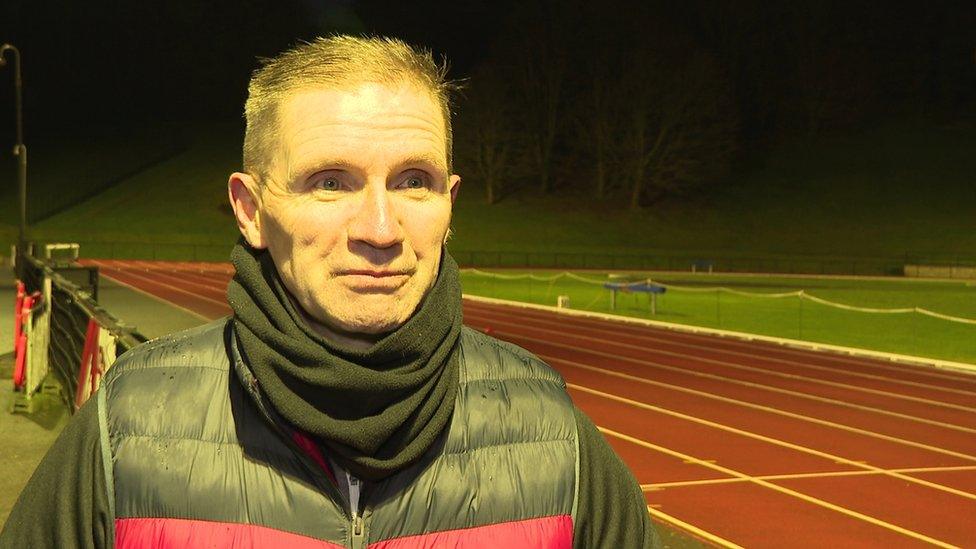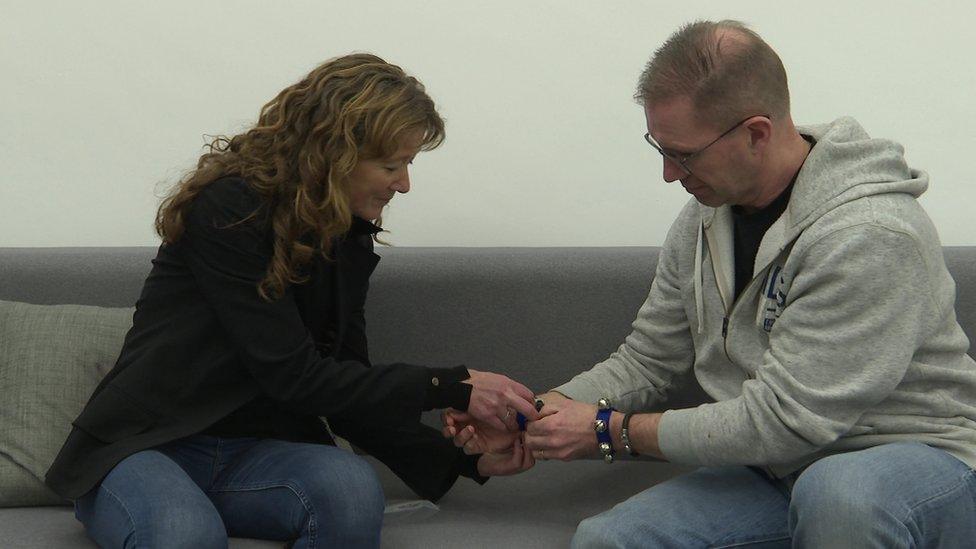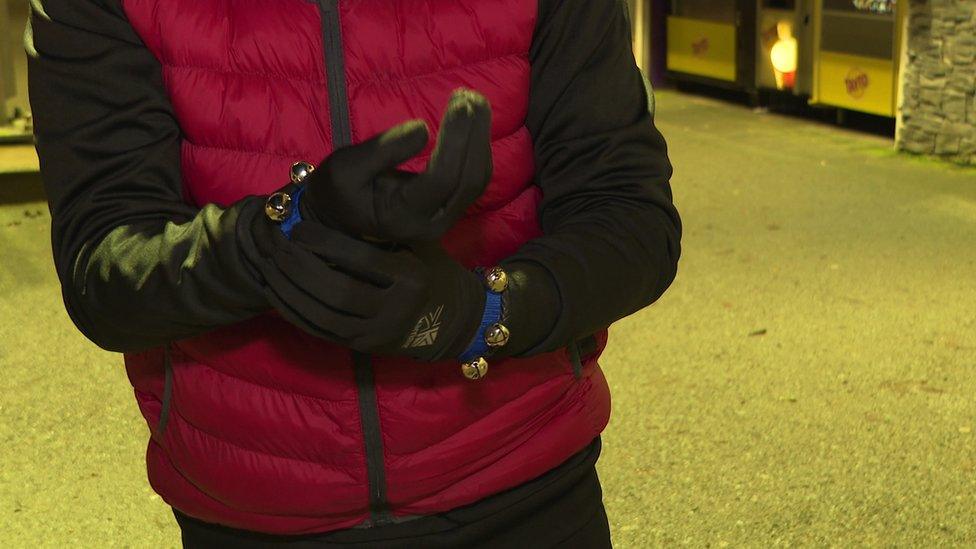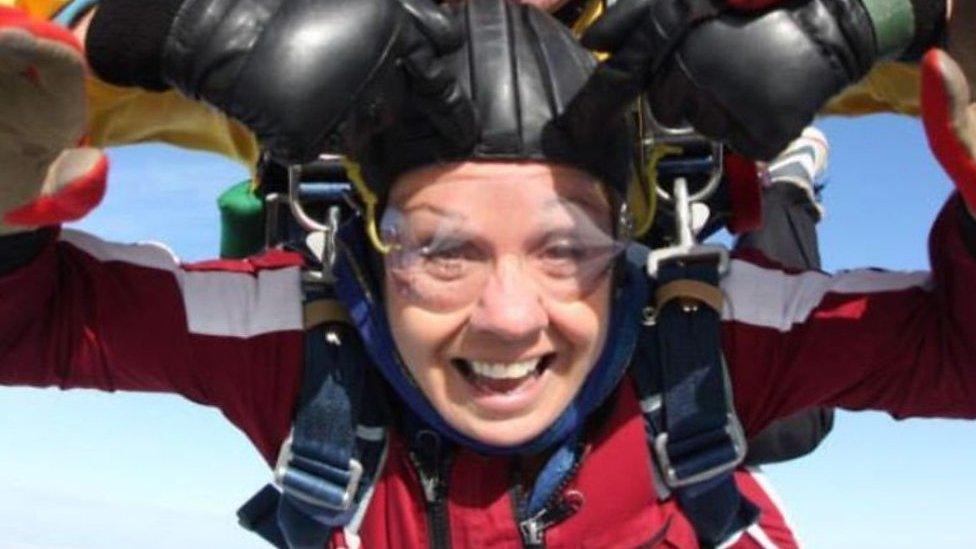Parkinson's disease: Runner Patrick Crossan stays on track despite diagnosis
- Published

"Whether I've Parkinson's or not, I'm racing to win," says Patrick Crossan
Patrick Crossan has been running since he was a teenager.
In 2014 he turned 50 and it was a big year on and off the track, as a shock diagnosis threatened to derail his running success.
"I had noticed training wasn't going well, but my competition was going well," he says.
"I ran the Scottish Indoors, Irish championships and the Northern Irish championships and I won them all.
"So that was going great, but it was also the year I was diagnosed with Parkinson's."
'Very shocked'
It started with a tremor in his hand.
"I eventually went to a consultant who diagnosed me with Parkinson's," he says.
"I was very shocked. I thought it was an old person's disease.
"My first question was 'do I have to give up running?' My consultant said no, you have to keep going."
Instead of giving up, Patrick modified his training to suit the condition, which often left him tired and meant he took longer to recover.
Patrick's currently training for the European Masters Indoor Athletics Championships in March, alongside other runners who don't have neurological conditions to factor in.
Raymond McComb is one of his coaches.
"Where the other guys are doing more runs, when we see Patrick is starting to slow up we're cutting back.
"So that means it's quality runs rather than quantity. I think that's better as the body will recover much quicker for him," Raymond explains.
Runner Patrick Crossan is still winning races six years after being diagnosed
But there's another problem. One of the symptoms of Parkinson's is freezing - where the person's body just stops. It can happen at any time, including during a race.
That's where Cathy Craig, professor of experimental psychology at Ulster University, comes in.
She's been studying how and why people move, and her research is helping to keep Patrick on the right track.
She explains: "Towards the latter half of his race, often when he was in the lead, Patrick's brain decided it wasn't going to let him move in the fluid, free way that he normally moved throughout the rest of the race.
"What we had to do was find a way that would help him understand, hear his movements and then be able to control those movements in a much more fluid way."
So to hear himself running, Prof Craig suggested that Patrick use a wrist band with four bells attached to each. They jingle when he runs.

Prof Craig encouraged Patrick to use bells to help control his movement
"By hearing the sound of your movement, his brain is able to use that information to help to control the next cycle of movement that he has to make," she says.
"It acts like a feedback mechanism for the brain that helps him control the quality of his movements."
Each footstep triggers the jingle of the bells, which triggers Patrick's brain to tell him to keep moving.
Patrick used the bells for the first time on Sunday when he competed in the 60m and 200m sprint at the Scottish National Indoor Masters Championships.

The bells are a "feedback mechanism for the brain" according to Prof Craig
There were two more medals to take home, as he came third and second respectively in the events.
"Whether I've Parkinson's or not, I'm racing to win," he says.
"I'll continue running until physically I can put one foot in front of another.
"I've had to adapt due to the Parkinson's, but with the help of people like Dr Craig, new ideas are going to help my career."
- Published23 January 2020
- Published12 January 2020
